As individuals age, the cardiovascular system undergoes natural changes, and the risk of heart diseases tends to increase. Understanding the specific heart diseases related to old age is crucial for proactive health management. In this SEO-friendly article, we’ll explore and highlight key points surrounding heart-related issues in the elderly.
| Cardiovascular Disease | Description | |
|---|---|---|
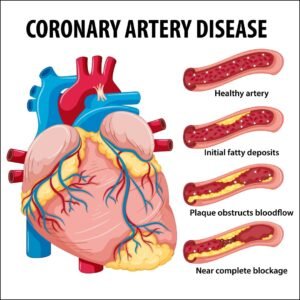 | Coronary Artery Disease (CAD) | The narrowing of arteries because of the buildup of plaque, causing a reduction in blood flow to the heart. |
 | Heart Failure | Weakening of the heart's ability to pump blood; common symptoms include fatigue, shortness of breath, and swelling. |
 | Atrial Fibrillation (AFib) | Irregular heartbeats that could result in blood clots, stroke, and heart failure. |
| Valvular Heart Disease | Damage to one or more of the heart's valves, affecting blood flow. | |
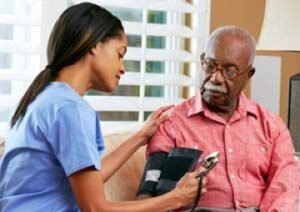 | Hypertension (High Blood Pressure) | An increase in pressure within the arteries. This often leads to more serious heart conditions. |
What Are the Heart Diseases Related to Old Age? Aging is associated with a variety of common heart diseases including coronary artery disease, heart failure, arrhythmias, and valvular heart disease. With increasing age, there is a natural development of disorders of the heart and blood vessels, and wear and tear makes periodic check-ups of the heart quite necessary.
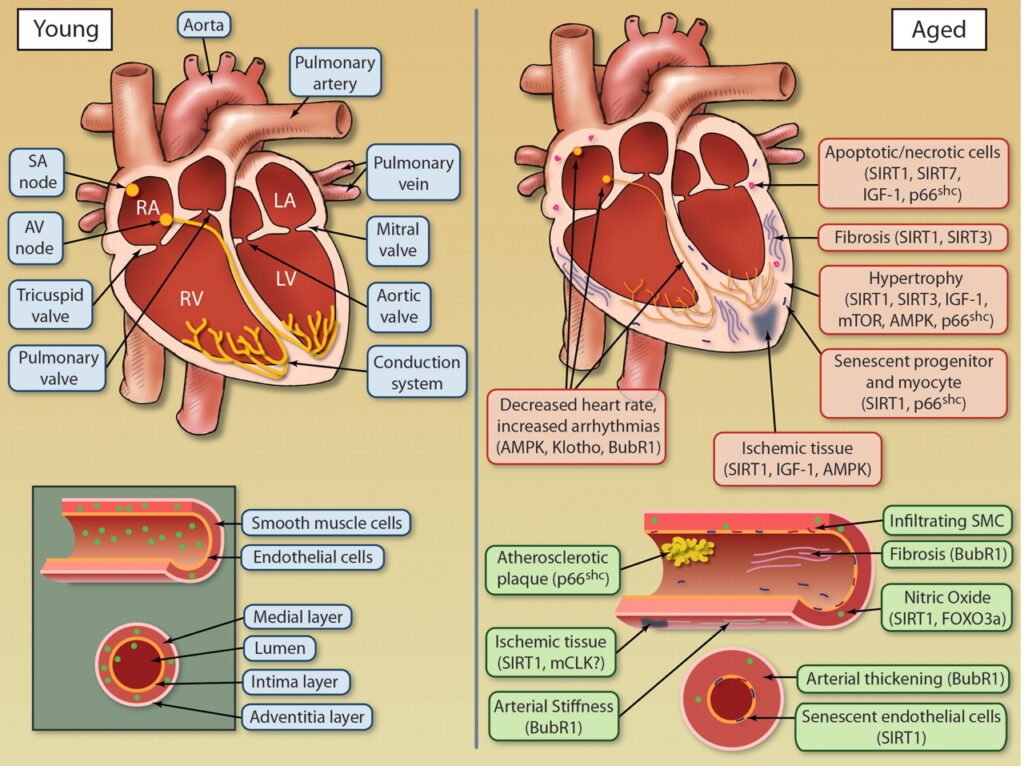
Common Heart Diseases in Old Age
Atherosclerosis:
Plaque build-up in the arteries causes the accumulation of fatty deposits (mainly cholesterol) on the inner walls of the blood vessels. Smoking, lack of exercise and excessive alcohol intake contribute to the plaque buildup. Conditions like diabetes, hypertension and obesity raise the risk. As we age the risk of plaque accumulation increases.
Men tend to develop plaque earlier than women. Maintain a healthy weight to reduce plaque buildup. Follow a heart healthy Mediterranean diet rich in olive oil, fruit, vegetables, nuts and fish.
Limit red meats and processed food. Chronic stress can worsen arterial health so find ways to manage stress.
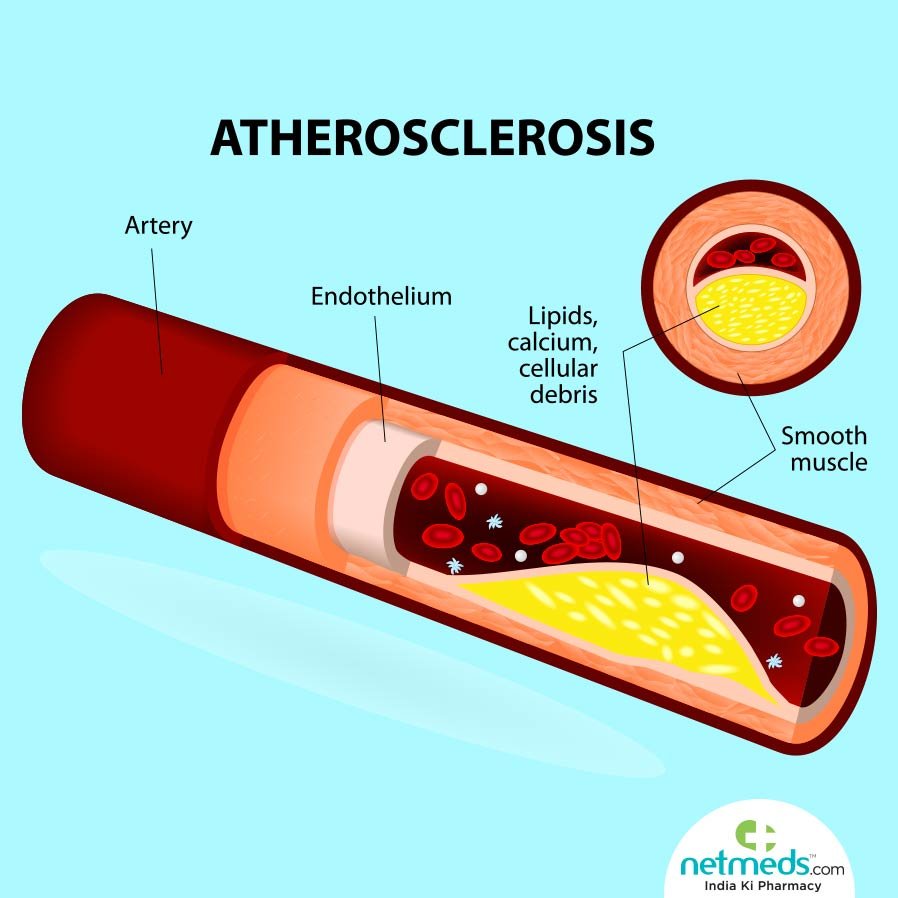
Hypertension:
Hypertension is common, especially among older adults. As people age, their blood vessels undergo changes that can contribute to elevated blood pressure. Obesity, Sedentary Lifestyle, Diet, Genetics, Stress are the causes of hypertension.

Coronary Artery Disease(CAD):
CAD involves the narrowing of coronary arteries- the blood vessels that supply oxygen rich blood to the heart muscle. When coronary arteries narrow due to plaque build up, blood flow to the heart muscle decreases. This can lead to angina(chest pain) or, in severe cases, a heart attack.
Overtime, CAD can weaken the heart, leading to heart failure.
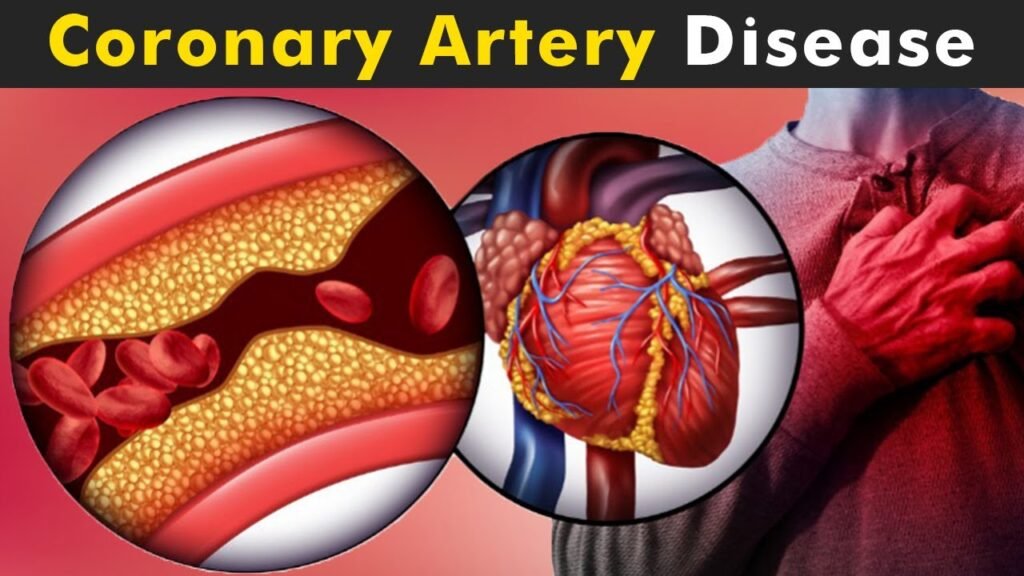
Aortic Stenosis:
Imagine a person with aortic stenosis. This aortic valve is narrowed, making it difficult for blood to flow from ventricle into aorta. As a result, the left ventricle has to exert more force to push blood through the narrowed valve. The heart may enlarge due to increased workload.
If left untreated, this condition can eventually lead to heart failure, causing symptoms like failure, causing symptoms like to heart failure, causing symptoms like fatigue, shortness of breathe and chest pain.
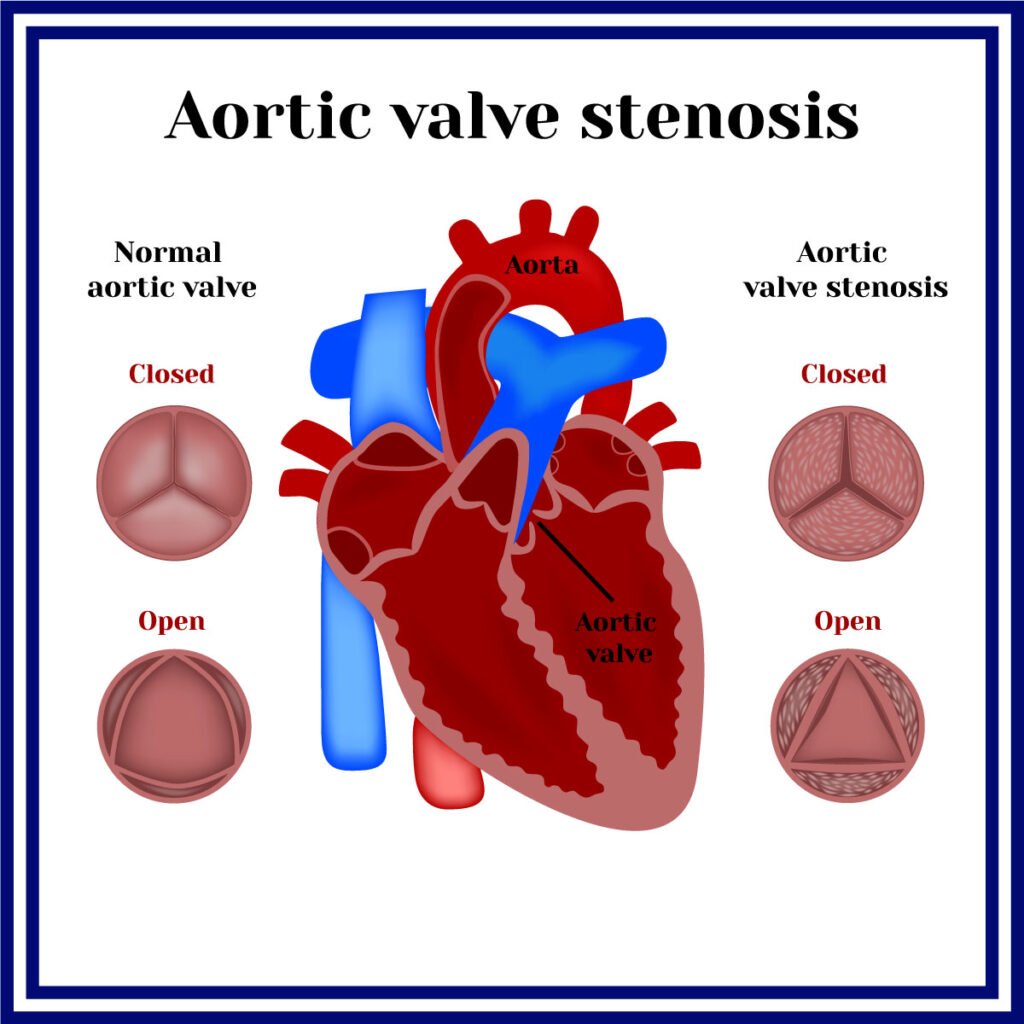
Hypertropic Cardiomyopathy(HCM):
Hypertrophic cardiomyopathy (HCM) is a condition where the heart muscle thickens abnormally, leading to various symptoms and potential complications.
Common symptoms of Hypertrophic Cardiomyopathy are Chest Pain, Shortness of Breath, Palpitations, Fainting. Early diagnosis is crucial for individuals with Hyper Cardiopathy.
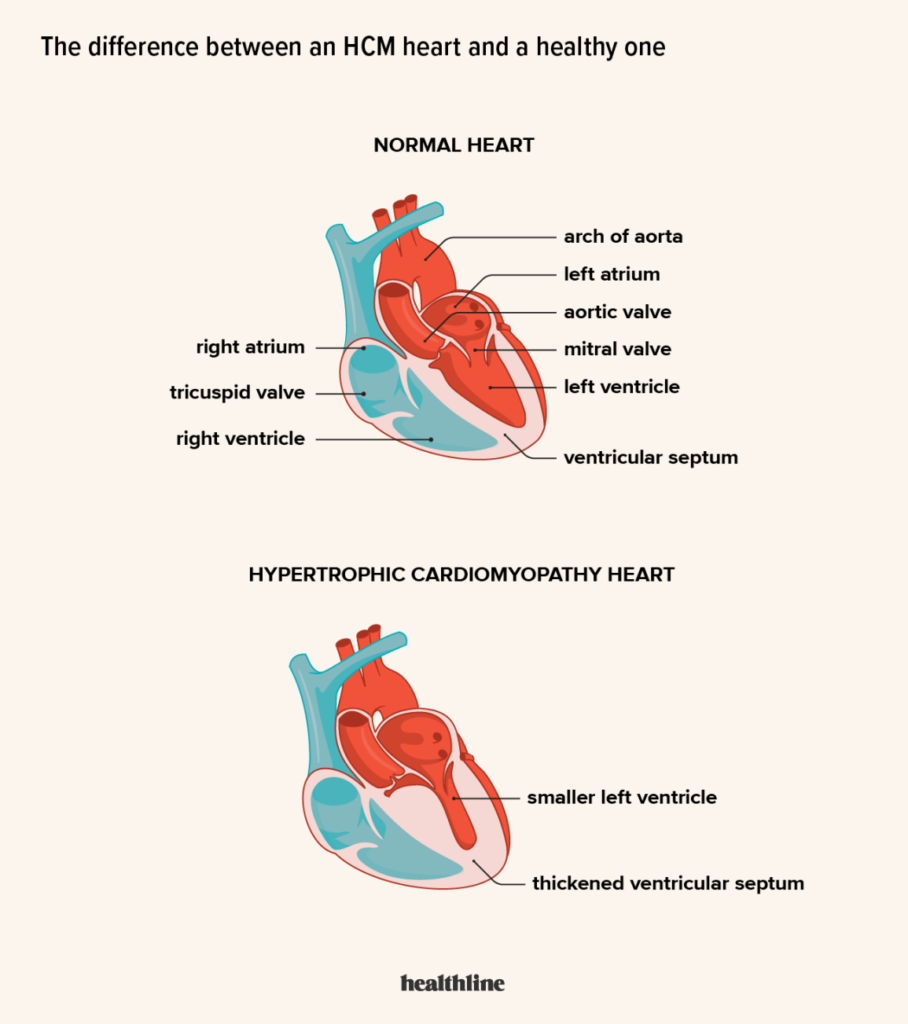
Mr. Suresh is a 55 year old male accountant. He spends most of his work day sitting at a desk, crunching numbers. His physical activity is limitless to walking his dog in the nearby park.
Mr. Suresh enjoys fast food and sugary snack. He rarely exercises and prefers watching TV over any form of physical activity. Recently, he started experiencing chest pain during walks. His breathlessness and discomfort prompted him to seek medical attention. After evaluation doctors diagnosed him with atherosclerosis. His coronary arteries were narrowed plaque build up. restricting blood flow to his heart.
Mr. Suresh was advised to make lifestyle changes, exercise regularly, improve his diet and quit smoking. He also started cholestrol lowering medications.
How does a person feel during heart attacks
With the growing complexities of lifestyle, eating habits, and obesity problems in grown people, Heat attacks have started increasing in number. Heat attacks are more common in diabetic people. The most common reason for the critical delay in medical treatment is patient unawareness and lack of early warning. It is possible to detect the onset of a heart attack and to inform the doctor or the person concerned.
It should be ensured that a heart patient always has at least one person to monitor his/her blood pressure, medicines, food intake, and other factors related to his/her health. Heart attacks are becoming common in both genders. Not only oldies but middle-aged people also experience heart attacks.
Common symptoms of heart attacks include a feeling of pressure, tightness, pain, squeezing, or aching in the chest. The pain can spread to the shoulders arms, back neck, jaw teeth, or upper belly. it can happen with or without chest discomfort or may happen at rest or during physical activity. Excessive sweating without physical exertion. Feeling sick to your stomach or vomiting, Feeling faint or unsteady. unusual extreme tiredness.
If you suspect someone is having a heart attack, it is crucial to seek emergency medical help immediately. Every minute counts in getting the necessary treatment.
Heart disease is a major malfunction. Drinking, Smoking, and Tobacco intake, lead to obesity and malfunctioning of the heart. Managing proper eating habits from early adult ages can minimize heart disease. Meditations like Pranayama, exercising, reducing weight, healthy eating habits, and engaging in spiritual activities, keeping the mind calm and quiet are some basic practices for people who want to prevent heart disease.
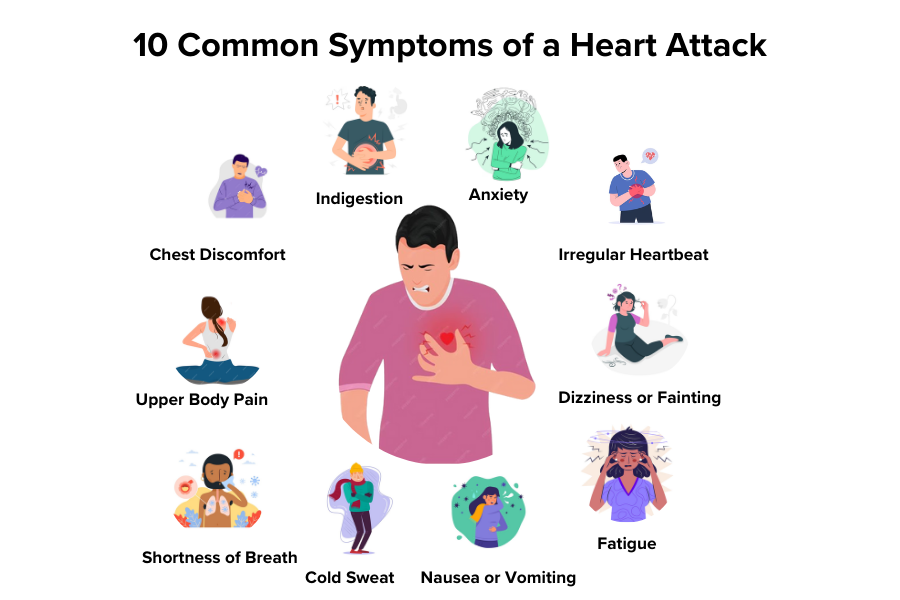
Patanjali Ayurvedic medicines that are commonly used are:
Divya Cardiogrit Gold Tablet:
The tablet contains various herbs and minerals. Take 1 tablet twice a day after meals. Follow your practitioners’s guidance but typically, it not a lifetime treatment. The purpose is to support heart health and may help manage artherosclerosis.
Ginger and Garlic:
Incorporate fresh ginger and garlic into your diet. They have inflammatory properties and may help prevent plaque buildup. Use them in cooking or consume herbal teas.
Guggulu (commiphora mukul)
Guggulu resin has lipid-lowering affects. Consult an Ayurvedic practitioner for the right dosage and form(tablets and powder).
Kamala Khura(Lotus stem alkali)
It is used traditionally for cardiovascular health. Follow practitioner’s advice.
Remember that Ayurvedic treatments are holistic and focus on overall well being. Consult and Ayurvedic expert to tailor the treatment specific needs. for personalized advice, consider visiting Patanjali’s Arogya kendra or an Ayurvedic Practitioner near you.
Medications, Medical Procedures
Statins:
These drugs(atorvastin, rosuvastatin) lower bad cholestrol levels by blocking an enzyme in the liver that promotes cholestrol production.
Medical Procedures
Atherectomy
A procedure to remove plaque from arteries. It involves using catheter with tiny rotating blades or a laser to shave or vaporize the plaque.
Angioplasty
A catherter with a small balloon at the blockage site to widen the artery. On average Atherectomy cost in India ranges from Rs. 2,60,000 to Rs. 4,50,000. The cost of angioplasty in India can range from approximately Rs. 2,50,000 to Rs. 4,40,000 depending on hospital and location.
Government hospitals in India offer subsidized or free medical services to economically disadvantaged individuals. Eligibility criteria and waiting times may apply, so it is essential for patients to consult with local healthcare authorities.
Rajesh a 45 year old software engineer, understands the critical role of heart health. Despite no symptoms, he schedule annual heart check ups. Rajesh’s regular checkups allow his cardiologist to monitor his blood pressure, cholesterol levels and heart rhythm. Rajesh can take preventive measures to reduce his risk of heart disease by catching any abnormalities early.
Rajesh’s family history includes heart disease, making him more susceptible. His cardiologist tailors his checkups, considering factors like age. lifestyle and genetics. This personalized approach helps Rajesh stay informed and proactive. Rajesh’s checkups track changes overtime. If his cholesterol level rise or blood pressure fluctuates, adjustments can be made promptly. This ongoing monitoring ensures heart health. Rajesh’s cardiologist educates him about heart health, explaining test results and risk factors. Armed with knowledge, Rajesh makes informed choices, such adopting or heart healthy diet and exercising regularly.
Rajesh also recognizes the importance of health insurance for heart related conditions. The health insurances covers critical illnesses, including heart related ailments. Health Insurance plans cover medical expenses related to heart conditions, ensuring Rajesh doesn’t deplete his savings during emergencies. Knowing he has coverage, Rajesh focusses on maintaining his heart health.
Conclusion
Understanding the heart diseases related to old age is vital for promoting cardiovascular health in the elderly. Proactive measures, regular check-ups, and a healthy lifestyle play key roles in preventing and managing these conditions. We can contribute to the well-being of our aging population and enhance the quality of life in their later years by raising awareness and adopting preventive strategies.
How does a person change when he grows old?
FAQs
A. What is atherosclerosis, and how does it affect older individuals?
- 1.Definition of atherosclerosis.
- 2.Impact on blood flow and potential heart complications.
B. How common is hypertension in older adults, and what are the associated risks?
- 1.Prevalence of hypertension in the aging population.
- 2.Age-related changes in blood vessels as risk factors..
C. What are the symptoms of heart failure in the elderly?
- 1.Overview of heart failure.
- 2.Fatigue, fluid retention, and other symptoms associated with heart failure.
D. Why is regular cardiovascular check-ups essential for older adults?
- 1.Importance of early detection of risk factors.
- 2.Recommended frequency for cardiovascular check-ups.
E. How do physiological changes due to aging impact the heart?
- 1.Stiffening and reduced elasticity of blood vessels.
- 2.Natural wear and tear affecting the heart muscle.

